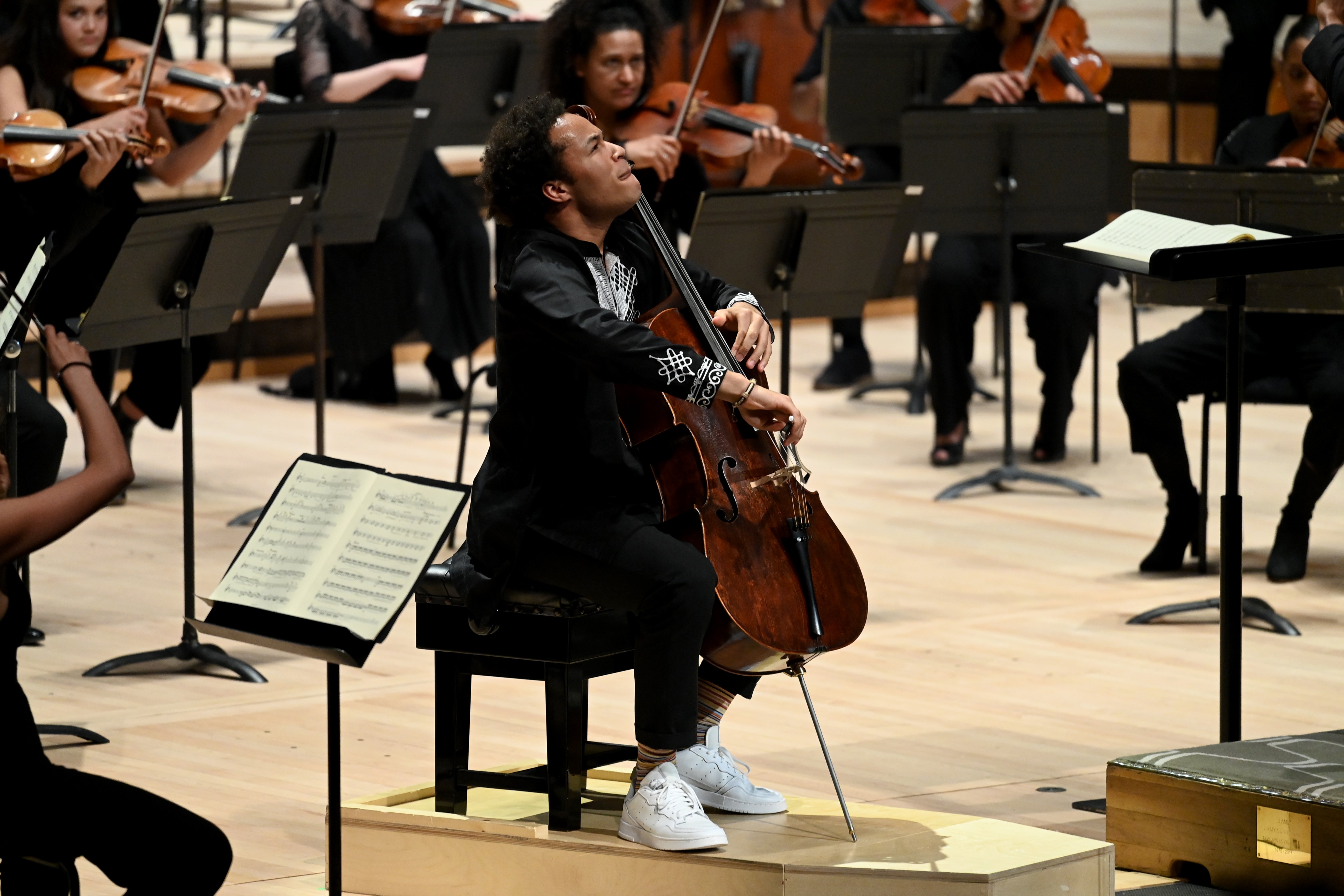Cellist who performed at Harry and Meghan wedding inundated with racist abuse in Rule, Britannia! row
Sheku Kanneh-Mason says the song can make some people feel uncomfortable
The award-winning cellist who performed at Harry and Meghan’s wedding has been inundated with racist abuse after suggesting “Rule, Britannia!” should be axed from BBC’s Proms.
Sheku Kanneh-Mason, 26, who performed at the royal wedding aged 19, said recently that people “don’t realise how uncomfortable a song like that can make a lot of people feel”.
The tune refers to Britain’s colonial past and involvement in mass enslavement and was written at a time when the country’s involvement in the abhorrent practice was thriving.
But, following his comments, the lauded musician faced a torrent of online abuse.
“Replying to the barrage of racism against my son @ShekuKM this week,” his mother Dr Kadiatu Kanneh-Mason wrote on X/Twitter on Monday .
“So many feel it’s ok to call for deportation, flogging, sending him ‘back to Africa’ and to use ‘n*****’ against someone trying to engage in a conversation about music and inclusion. Horror, rage, heartbreak.”
The song is traditionally performed at the Last Night of the Proms, normally with a guest soloist.
In 2020, the BBC said the concert would perform the song without lyrics due to its controversy. It made a U-turn at the last moment and the song was performed with the original lyrics.
During an interview set to be broadcast on BBC Radio 4’s Desert Island Discs on Friday, Kanneh-Mason said he did not think the song should be included because “so much wonderful music” could replace it.

“I think maybe some people don’t realise how uncomfortable a song like that can make a lot of people feel, even if it makes [the people singing it] feel good,” he said.
“I think that’s somehow a big misunderstanding about it.”
Kanneh-Mason, who received an MBE in 2021, suggested the song could be replaced with British folk music, adding: “There is so much wonderful British music, the wealth of folk music from this country is astonishing.
“There is so much that is worth celebrating and having as part of a big celebration at the end of a wonderful music festival.”
The cellist, who is one of nine siblings all classically trained as musicians, also discussed his musical family’s experiences of racism during the interview.
“Very often, in the spaces that I was in within classical music, myself and my family were very often the only Black people in those places,” he said.
“There was certainly occasions where my being Black meant that I wasn’t necessarily taken seriously in some situations. And also outside, of course, outside of music.”

“Rule, Britannia!” originates from the 1740 poem, of the same title, by Scottish bard James Thomson, which was set to music in the same year by English composer Thomas Arne.
Some of the song’s lyrics include the lines “Britons never, never, never shall be slaves” and: “The nations, not so blest as thee / Must, in their turns, to tyrants fall / While thou shalt flourish great and free: The dread and envy of them all.”
Kanneh-Mason made history in 2016 when he became the first Black BBC Young Musician and has performed at the BBC Proms every summer since 2017.
He remains the highest-charting cellist of all time in the UK, after his 2020 album Elgar, based on Edward Elgar’s Cello Concerto, hit number eight, making it the first to ever break into the top 10.
Responding to Kanneh-Mason’s comments about “Rule, Britannia!”, the BBC said: “The Proms are built on long-standing traditions that were established by co-founder Sir Henry Wood, and which are loved by people around the world.
“One of these traditions is the Last Night festivities, other traditions include promoting new music, accessibility and opening up the world of classical music to as many people as possible.”
Join our commenting forum
Join thought-provoking conversations, follow other Independent readers and see their replies
Comments
Bookmark popover
Removed from bookmarks